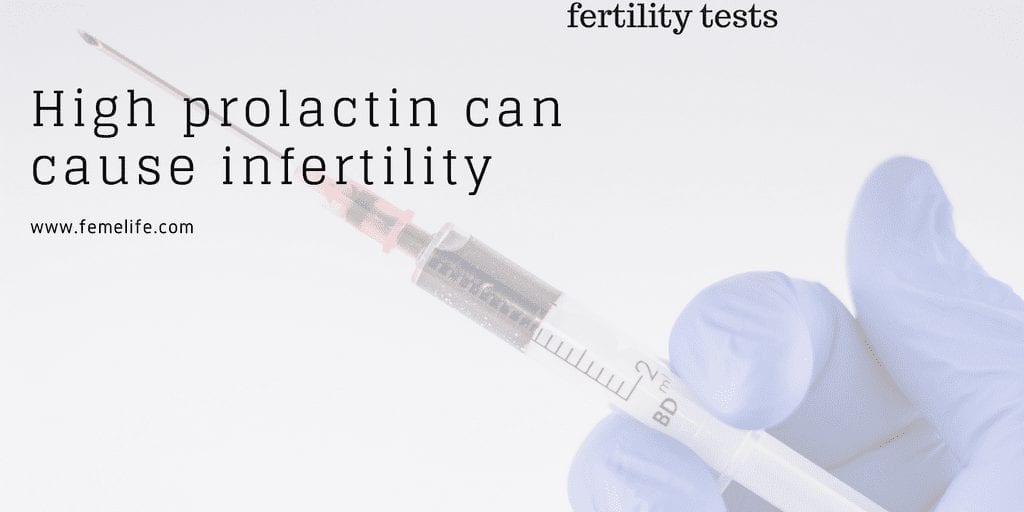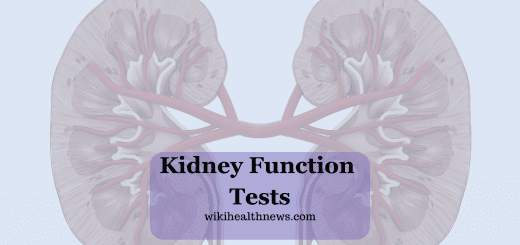Why Prolactin is screened during fertility testing?

Role of prolactin in body
It is during fertility evaluation many patients come to know about the importance of the hormone Prolactin. Prolactin is a hormone produced by the pituitary gland in the brain. It’s also known as PRL or lactogenic hormone. Prolactin is mainly used to help women produce milk after childbirth. It’s important for both male and female reproduction. The role of prolactin in female is related to milk secretion after childbirth.
One of the main regulators of the production of prolactin from the pituitary gland is the hormone called dopamine, which is produced by the hypothalamus, the part of the brain directly above the pituitary gland. Dopamine reduces prolactin production, so the more dopamine there is, the less prolactin is released. Prolactin itself enhances the secretion of dopamine, so this creates a negative feedback loop.
Oestrogen is another key regulator of prolactin and has been shown to increase the production and secretion of prolactin from the pituitary gland. Studies have shown small increases in prolactin in the blood circulation of women during stages of their reproductive cycle where oestrogen levels are at their highest. This is also the case during and after pregnancy, which makes sense, since a higher level of circulating prolactin is needed to cause lactation to start.
In addition to dopamine and oestrogen, a whole range of other hormones can both increase and decrease the amount of prolactin released in the body, with some examples being thyrotropin-releasing hormone, oxytocin and anti-diuretic hormone.
What are the normal levels of serum prolactin? Are they different in men and women?
In humans, prolactin is produced both in the front portion of the pituitary gland, it is also produced in the uterus, immune cells, brain, breasts, prostate, skin and adipose tissue. The normal serum prolactin level is less than 30 ng/mL, depending on the laboratory. Women tend to have slightly higher levels than men, probably because of estrogen stimulation of prolactin secretion.
Why Prolactin is screened during fertility testing?
Elevated prolactin levels interfere with
the secretion of reproductive hormones from the brain (hypothalamus), resulting in a decrease in circulating levels of estrogen (female) or testosterone(male). This can lead to infertility, menstrual irregularity, and absence of menstruation in women, and loss of sexual interest in both men and women.
When elevated Prolactin is considered to be normal?
Prolactin is found to be elevated in pregnancy and
lactation. During the later half of pregnancy, the prolactin level may reach 200 to 300 ng/mL . It then continues to rise acutely at the time of breastfeeding. Prolactin values are also elevated during sleep, strenuous exercise, stress, and nipple stimulation. In these cases, the elevation is mild, below 50 ng/mL.
What are the causes of increased Prolactin level?
There are many factors which increase prolactin level like:
1) Injury to head and brain
2) Surgery on the brain
3) Thyroid dysfunction like hypothyroidism
4) Intake of medications like antidepressants, estrogen etc.
5) Medical disorders like kidney failure, Herpes infection
6) Tumors of the brain
7) Mental Stress
What is Galactorrhea (excess milk secretion)?
Galactorrhea is the discharge of milk from the breast not associated with pregnancy or lactation. It is a typical symptom of prolactin-secreting tumors. Galactorrhea is uncommon in men but may be seen in association with decreased reproductive function.
What are the symptoms of Prolactin tumors in men and women?
The major symptoms of elevated prolactin values in men are decreased reproductive and sexual performance. In advanced cases the patient experiences headaches and visual field defects related to the size of the tumour.
Women are more likely to seek evaluation early in the
disease process, when infertility or menstrual irregularities prompt an evaluation of their hormonal
status. Symptoms may be ignored or attributed to psychological causes in men and hence present at an advanced stage of disease.
There is a much higher prevalence of small tumours in women possibly due to oestrogen which may promote the appearance of smaller and less aggressive prolactin-secreting tumours.
What happens if there is insufficient secretion of Prolactin?
The condition of having too little prolactin circulating in the blood is called hypoprolactinaemia. This condition is very rare and may occur in people with pituitary underactivity.
A reduced prolactin level can lead to insufficient milk being produced after child birth. People with low prolactin levels usually do not have any specific medical problems, but might have low immunity against disease.
www.femelife.com











